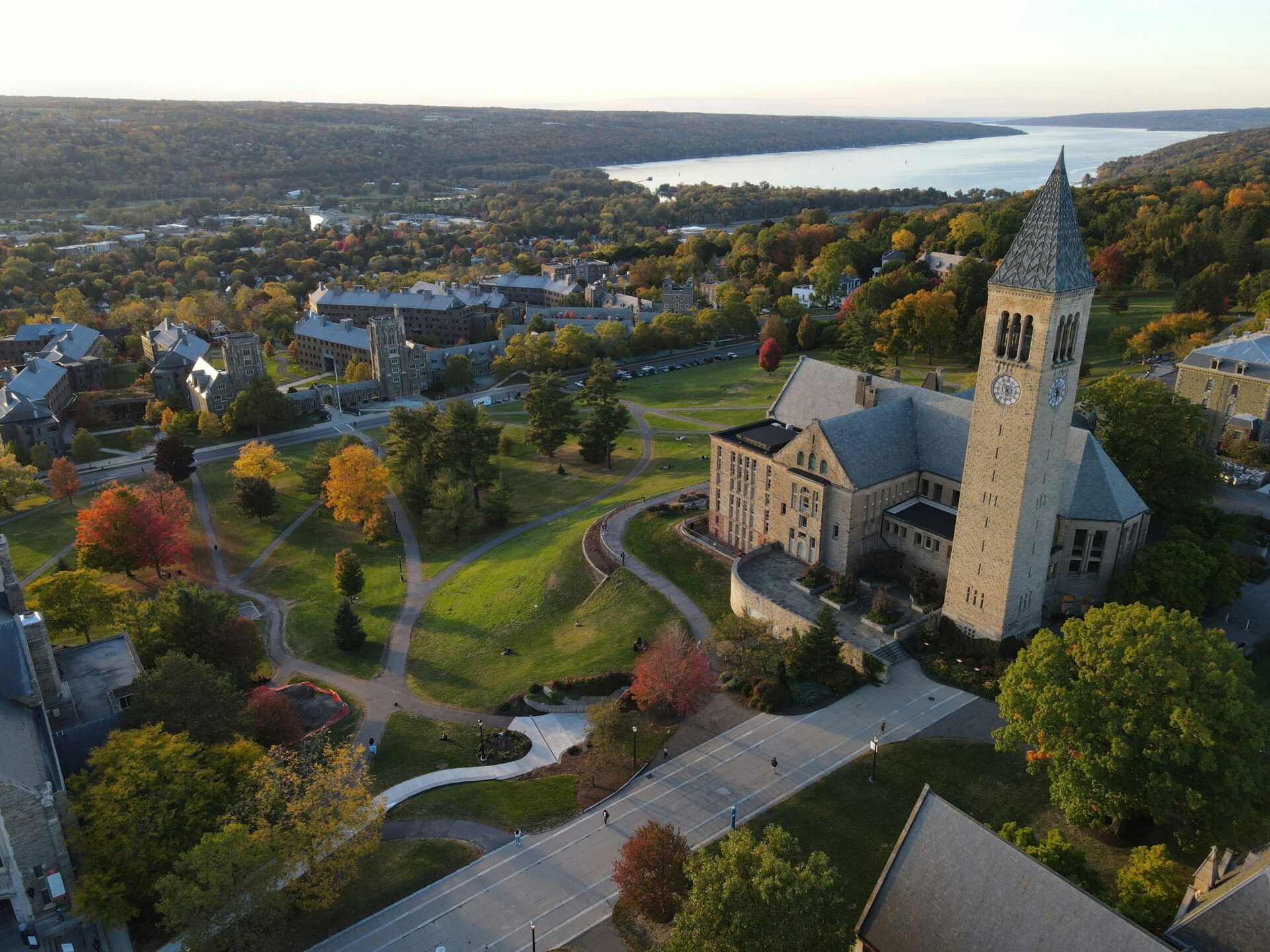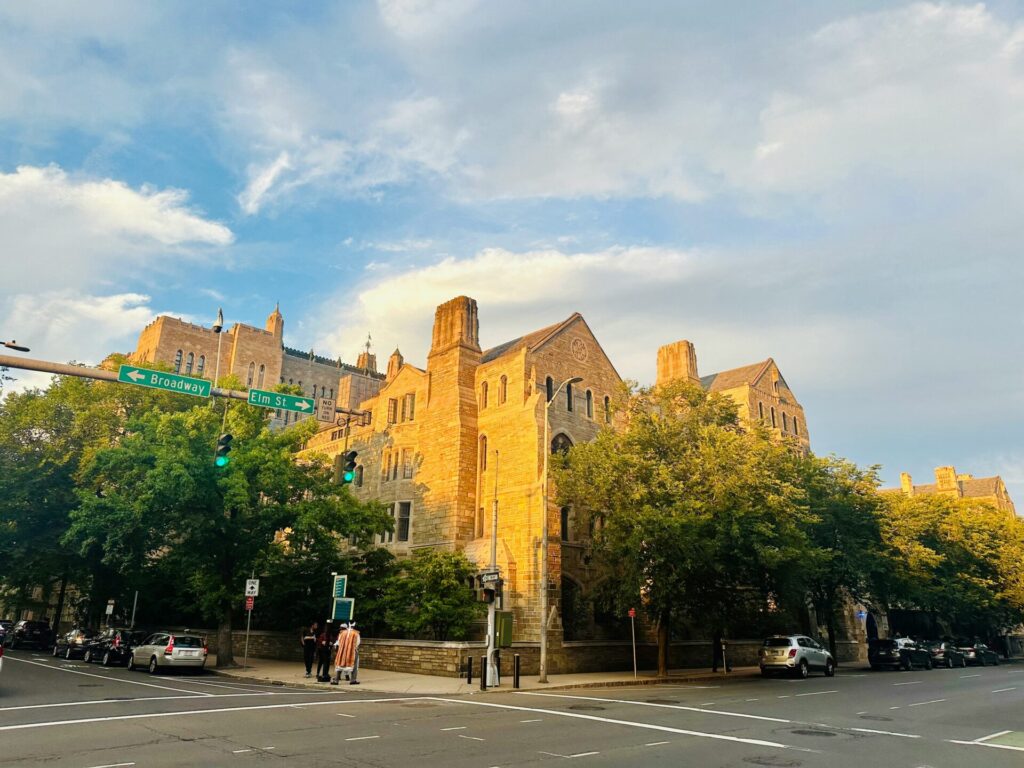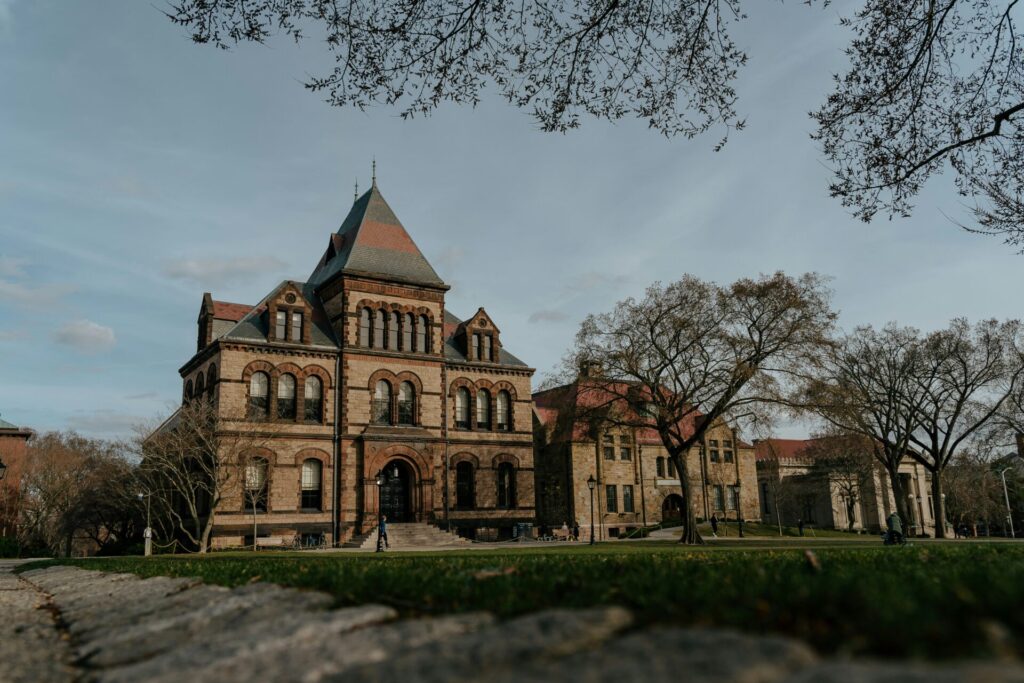A Cornell University high school summer program, offered as part of Cornell’s Precollege Studies, allows high-achieving high school students to take real university courses for credit on Cornell’s Ivy League campus. Designed for motivated learners entering grades 10–12, the programme mirrors the academic expectations of full-time undergraduates. Students study alongside Cornell students, are taught by faculty, and live on campus, gaining both academic experience and a preview of college life. Courses span the arts, humanities, sciences, engineering, and more, and the programme is offered in both in-person and online formats.
Course Breakdown
There are many ways to experience Cornell-level academia whilst still in high school, but a limited number of officially affiliated programmes. We’ve explained how they differ below.
| Program Type | Who’s it for? | Duration | Format & Schedule | Outcomes | Cost (2025) & Notes |
|---|---|---|---|---|---|
| Residential | High school juniors and seniors | Typically 3 weeks | In-person on Cornell campus; daily classes + campus life | Earn Cornell college credit and transcript; experience campus life; college prep | Tuition varies by course; often several thousand USD per 3-week course |
| Commuter | Local/regional high school juniors and seniors | Typically 3 weeks | Attend classes on campus daily, no overnight stay | Same as residential but no residential experience | Same as residential |
| Online | High school sophomores (completed grade 10) and above worldwide | 3 or 6 weeks (some courses) | Mix of synchronous (live) and asynchronous sessions; 4–6 hours/day commitment | Earn Cornell college credit and transcript; flexible access; Ivy League academic experience | Approx. $1,750 per credit; total cost depends on credits; financial aid available |
Cornell’s Precollege Studies offers over 100 undergraduate-level courses across a wide range of academic fields. Below are examples of course subjects, grouped by category:
STEM (Science, Technology, Engineering, Mathematics)
- Animal Science
- Astronomy
- Ecology and Evolutionary Biology
- Microbiology
- Molecular Biology and Genetics
- Biomedical Sciences
- Computer Science
- Engineering (Introduction)
- Mathematics
- Natural Resources and the Environment
- Nutritional Science (e.g., Nutrition, Health, and Society; Introduction to Public Health)
Business, Economics, and Management
- Applied Economics and Management (e.g., Introduction to Business Management, Financial Accounting, Marketing, Macroeconomic Theory, Risk Management)
- Hotel Administration
- Management: Business Administration
Social Sciences
- Anthropology
- Archaeology
- Cognitive Science
- Government (e.g., Introduction to Political Philosophy, Black Political Thought, Comparative Politics of the Middle East, International Human Rights)
- Human Development (e.g., Introduction to Cognitive Science, Introduction to Human Development, Intro to Behavioral Neuroscience, Introduction to Social Psychology, Multilingualism and Multiculturalism in Early Childhood)
- Psychology (e.g., Introduction to Psychology, Sports Psychology, Environmental Psychology, Introduction to Personality, Introduction to Social Psychology)
- Science and Technology Studies (e.g., Science, Technology, and Politics; Climate Change; Evolution; Body, Mind, and Health)
Humanities
- American Sign Language
- Asian Studies
- History
- History of Art
- Jewish Studies
- Linguistics
- Near Eastern Studies
- Philosophy
Arts, Design, and Media
- Architecture
- Art
- Fiber Science and Apparel Design
- Music
- Performing and Media Arts
Other Areas
- City and Regional Planning
- Design and Environmental Analysis
- Physical Education
Sample Course Titles:
- AEM 1200 Introduction to Business Management
- AEM 2841 Python Programming for Data Analysis and Business Modeling
- GOVT 1817 Making Sense of World Politics
- HD 2230 Intro to Behavioral Neuroscience
- NS 1150 Nutrition, Health, and Society
- PSYCH 1101 Introduction to Psychology
- STS 1105 Climate (you can) Change
Cornell University: An Idyllic Summer School Setting
Cornell University, founded in 1865, combines Ivy League prestige with a unique public mission. Located in the scenic hills of Ithaca, New York, it’s renowned for academic breadth, cutting-edge research, and a commitment to public engagement. Its diverse colleges span from engineering to agriculture to fine arts, and its student body reflects a global, forward-thinking community.
For high school students, a summer programme at Cornell offers the chance to explore life at a top-tier research university. Whether attending a residential course on campus or participating in a specialised academic track, students are exposed to the university’s rich interdisciplinary approach. Facilities include state-of-the-art labs, lecture theatres, and libraries, as well as stunning natural surroundings that invite outdoor exploration and reflection.
The chance to live and study on campus – even for a few weeks – offers a window into undergraduate life at a world-class institution. Students experience not only rigorous academic learning, but also social independence, networking opportunities, and access to inspiring mentors. It’s an ideal environment for those eager to challenge themselves intellectually while exploring potential university pathways in a setting that blends tradition with innovation.
Key Features of Cornell University High School Summer Program
A Cornell University high school summer program provides direct access to undergraduate courses for credit. Participants choose from a broad catalogue of subjects and experience college-level teaching and coursework. Classes are academically rigorous and taught by Cornell faculty. In-person students live in campus residences and take part in social activities, workshops, and campus events. For added flexibility, online options allow students to participate from anywhere in the world while still earning credit and learning from Cornell instructors.
Advantages
One of the biggest advantages of a Cornell University high school summer program is academic authenticity. Students aren’t placed in modified or introductory workshops – they’re fully immersed in university-level study, earning credit that may be transferable to their future college. The opportunity to live and learn on campus gives students a feel for college independence, from managing their schedules to engaging in academic dialogue with faculty and peers.
Cornell also offers an impressive range of subject options, from architecture and engineering to philosophy, business, and veterinary medicine. Students can explore potential majors or challenge themselves in new areas of interest. The programme includes support structures such as academic advising, writing help, and social programming to make the transition to college-style learning manageable and meaningful.
It’s also a strong addition to university applications, demonstrating a student’s ability to succeed in real college coursework and their commitment to academic growth.
Disadvantages
While a Cornell University high school summer program offers an elite experience, it’s not without drawbacks. The cost can be significant, covering tuition, housing, meals, and other fees, and financial aid is limited. For students without access to funding, the programme may be financially out of reach.
Admission is selective, requiring strong academic performance and a compelling application. Even well-qualified students may face rejection due to limited spaces. Additionally, the pace and expectations of a college course can be intense – students who are not already confident in their academic skills may find it overwhelming.
The in-person programme also requires travel and a multi-week residential commitment, which may not work for all families. While online courses are more flexible, they lack the full campus experience that many students are seeking. And while participants earn credit, not all universities guarantee they’ll accept it, so it’s worth confirming whether it will count towards future degrees.
Join the Immerse Education 2025 Essay Competition
Follow the instructions to write and submit your best essay for a chance to be awarded a 100% scholarship.

Cornell University High School Summer Program vs Immerse Education USA Programmes
A Cornell University high school summer program is designed for students who want to fully immerse themselves in the structure and pressure of real university coursework. It’s credit-bearing, intensive, and best suited to students with a clear academic focus and experience with independent learning. It delivers a traditional Ivy League classroom experience in a beautiful college-town setting.
Immerse Education’s USA programmes, by contrast, are specifically designed for high school students aged 13–18 who want an academically rich, highly personalised learning experience with more support and flexibility. Located in New York, San Francisco, and Boston, these programmes mirror university learning through small-group tutorials taught by expert tutors. Subjects include business, law, medicine, engineering, AI, and creative writing – many of which align with what Cornell offers.
Where Cornell delivers rigour through full university courses, Immerse offers subject exploration in a format that encourages discussion, mentorship, and confidence-building. Students live in university accommodation, enjoy curated cultural activities, and take part in workshops on public speaking and university applications.
For students who want to try out a subject, develop academic skills, and experience inspiring cities, Immerse offers a structured and accessible alternative to the more formal university course model. Both options are valuable, but they suit different learning styles and levels of academic readiness.
Virtual Cornell University High School Summer Program Alternatives
Immerse’s Online Research Programme is another alternative for those who want to work one-on-one with a subject expert and produce a research project over time. With the accredited Online Research Programme, students can earn 3 college credits.
Whether students are looking to explore subjects they’re already passionate about or try something new before applying to university, Immerse offers high-quality, internationally respected programmes that meet them where they are in their academic journey.
Is Cornell University High School Summer Program Worth It?
For students who thrive in fast-paced, challenging academic environments and are ready for college-level coursework, the Cornell programme is absolutely worth it. It offers access to real credit, Ivy League instruction, and the rhythm of campus life. However, it’s best suited to those who already know what they want to study and can handle independent learning. For students who prefer more guided learning, want to try out multiple subjects, or need a less pressured environment, other programmes may be a better fit.
How to Apply for Cornell University High School Summer Program
Applications for the Cornell summer programme are completed online through the Precollege Studies portal. Students must submit an application form, a personal statement, an official transcript, and a recommendation from a teacher or guidance counsellor. Some courses may have specific prerequisites or require writing samples, especially for more specialised subject areas.
Admission is selective and operates on a rolling basis, but early application is advised due to limited space. International students may also need to meet additional English proficiency requirements. Students applying for financial aid should review those deadlines and forms carefully. Successful applicants receive a course placement and further instructions about registration, housing, and orientation.
Final thoughts
Cornell’s High School Summer Program offers a prestigious, demanding opportunity to study real university courses and earn academic credit. For students ready to rise to that challenge, it’s a valuable stepping stone. But not every learner thrives in that environment. Immerse Education’s USA programmes offer a more supportive and flexible alternative – helping students explore new ideas, grow in confidence, and prepare for university in cities that inspire curiosity and ambition. Both paths open doors, but the best choice comes down to what kind of summer will help a student thrive.































